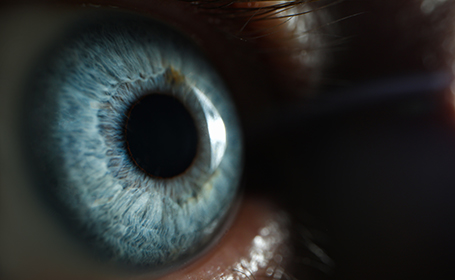
Cataracts Q&A
Two of our leading specialists answer common questions on cataracts, discussing signs and symptoms, the importance of early diagnosis, and the available treatments including different types of surgery
Cataracts are a common condition that affects many people as they get older. The main symptom is a clouding of the lens of the eye, which interferes with your vision.
We spoke to Prof Stephen A Vernon, a consultant ophthalmic surgeon from The Park Hospital, and Mr Kim Son Lett, a consultant ophthalmic surgeon from The Priory Hospital, to answer the most frequently asked questions about cataracts and cataract surgery.
What are cataracts?
Prof Vernon: A cataract is present when the usually clear natural lens of the eye (positioned just behind the pupil) develops an opacity or opacities that interfere with vision. They are usually present in both eyes but are often worse in one.
Cataracts can alter vision in a number of ways:
- A change in spectacle requirement (usually an increase in short-sightedness)
- Glare and dazzle, often noticed whilst driving at night or when the sun is low in the sky
- Worsening clarity of vision in any environment, which ranges from difficulty in distance vision (such as problems with road signs or recognising faces) and reading vision to severe problems with walking due to problems seeing steps
- A change in colour perception (as both eyes are usually affected a patient will not notice this until one eye has had surgery and sees colours better)
Cataracts can affect all people... They are very common, affecting one or both eyes in 30% of people aged over 65.

Who do cataracts affect and how common are they?
Prof Vernon: While a small percentage of children are born with cataracts, it is mainly a condition found in older people. The rate within the population gradually increases with age, with around 16% of 65-70 year olds and 71% of the over 85s having cataracts and requiring surgery.
Women are more likely to be affected than men of the same age, with diabetes and smoking also increasing the risk. Taking certain drugs over a period of time also increases risk, with corticosteroids being the commonest encountered.
Mr Lett: Cataracts can affect all people, although some conditions such as diabetes or medications can accelerate cataract development. They are very common, affecting one or both eyes in 30% of people aged over 65.
Are there any lifestyle or dietary changes I can make to reduce the risk of cataracts?
Prof Vernon: Most cataracts develop in people whose only risk factor is being older. However, being diabetic (particularly with poor control) and smoking increases one’s risk significantly.
Controlling diabetes and stopping smoking will reduce the risk of cataracts. There is some evidence that wearing sunglasses will slow the rate of cataracts developing, and it’s also thought that a good well-balanced diet may be beneficial.
Mr Lett: Avoid smoking, and if you are diabetic ensure optimal blood sugar control. It may be beneficial to eat foods rich in anti-oxidants such as fruits and vegetables, and also to ensure a good intake of vitamins A, C and E.

What treatments are available for cataracts?
Prof Vernon: In the early stages of some types of cataract, changing spectacles may help the symptoms, however a change of spectacle lens may be required every few months. When glare is a problem, the use of tinted lenses in the spectacles or wearing a peaked hat may help.
No medical treatment by eye drops or tables have been shown to reduce the rate of cataract formation. Surgery, for most people, is the best treatment when the cataracts have developed to the stage when vision problems are reducing the quality of life of the patient.
What are the benefits of cataract surgery?
Prof Vernon: As well as improving your clarity of vision, modern cataract surgery also can reduce or eliminate optical errors, particularly if the eye had previously had a high optical error or astigmatism (where the front of the eye is rugby ball shaped rather than round like a football).
Because of this, surgeons will typically discuss the pros and cons of different optical outcomes with the patient prior to surgery in order to optimise the vision for a particular patient’s needs.
In patients with glaucoma, taking out the cataract can help control the eye pressure and reduce the risk of acutely high pressure.
Mr Lett: Typically, patients will notice improved sharpness of vision, better colour contrast and brighter overall vision. They may also see less glare from lights and often only require glasses for reading post-operatively.
Are there any risks to cataract surgery?
Prof Vernon: There are always risks involved in any surgery. Fortunately, the rate of complications with modern cataract surgery performed by a skilled surgeon is very low. Complications can be divided into problems that occur during the operation and those that occur after surgery to an eye that has had a perfectly good operation.
In the former we are talking about technical problems. Most of these are minor and can be easily dealt with at the time and, although the operation may take a little longer, the outcome is usually not affected. However, on rare occasions surgery has to be cut short and the patient must return to theatre after a few days or weeks for further surgery to be carried out. In between the two operations the vision may be very blurred.
The most serious post-operative complication is infection. This is very rare when all the known preventative measures are taken in modern surgery (about 1 in 2000 cases), but can be devastating to vision with the possibility of losing vision altogether in the operated eye. Other complications can usually be successfully managed without a detrimental outcome but it is always possible that further surgery may be required at a later date.
Mr Lett: The main risks with cataract surgery include bleeding or infection inside the eye, both of which occur in less than 1 per 1000 cases. Further surgery after a complicated cataract operation is required in 1 in 200 cases. As with any intraocular operation, there is a very small risk of complete blindness in the operated eye.
Most patients see better within a day of their operation. In some it takes a little longer for the eye to settle.
What is involved in the recovery from cataract surgery?
Prof Vernon: Most patients see better within a day of their operation. In some it takes a little longer for the eye to settle. It is very important that eye drops prescribed are used at the correct frequency with drops being required for up to seven weeks following the operation.
In a few cases it may be possible to avoid the use of post-operative drops – this is via the delivery of a long-acting agent at the end of surgery and may be used if the patient cannot instil drops for any reason.
In some cases, where both eyes require surgery, there may be a period of imbalance before the second eye is operated upon. Managing this is important and requires detailed discussion between the surgeon and patient prior to the first eye’s operation.
Mr Lett: Normally the post-operative period with cataract surgery requires no more than eye drops and avoidance of strenuous exertion for four weeks.
Are there any alternatives to cataract surgery?
Prof Vernon: Once the cataract has developed to a stage where conservative management is ineffective, there is no alternative but to perform surgery if the patient wishes to regain vision.
Mr Lett: In the early stages of cataracts, your vision can be improved to a satisfactory level with updated spectacles. However, this will only be possible up to a point, after which cataract surgery is the only proven method of treatment.
Do you need surgery for cataracts?
If you are living with cataracts and want quick access to surgery that could get your vision back, get in touch today. Call or book online to arrange an initial consultation with Prof Vernon, Mr Lett or any of our other experienced ophthalmic surgeons. With 50+ locations across the UK, you’re never far from your nearest Circle cataract specialist.
Tags
How do I book an appointment?
If you're concerned about symptoms you're experiencing or require further information on this subject, talk to a GP or see an expert consultant at your local Circle Hospital.